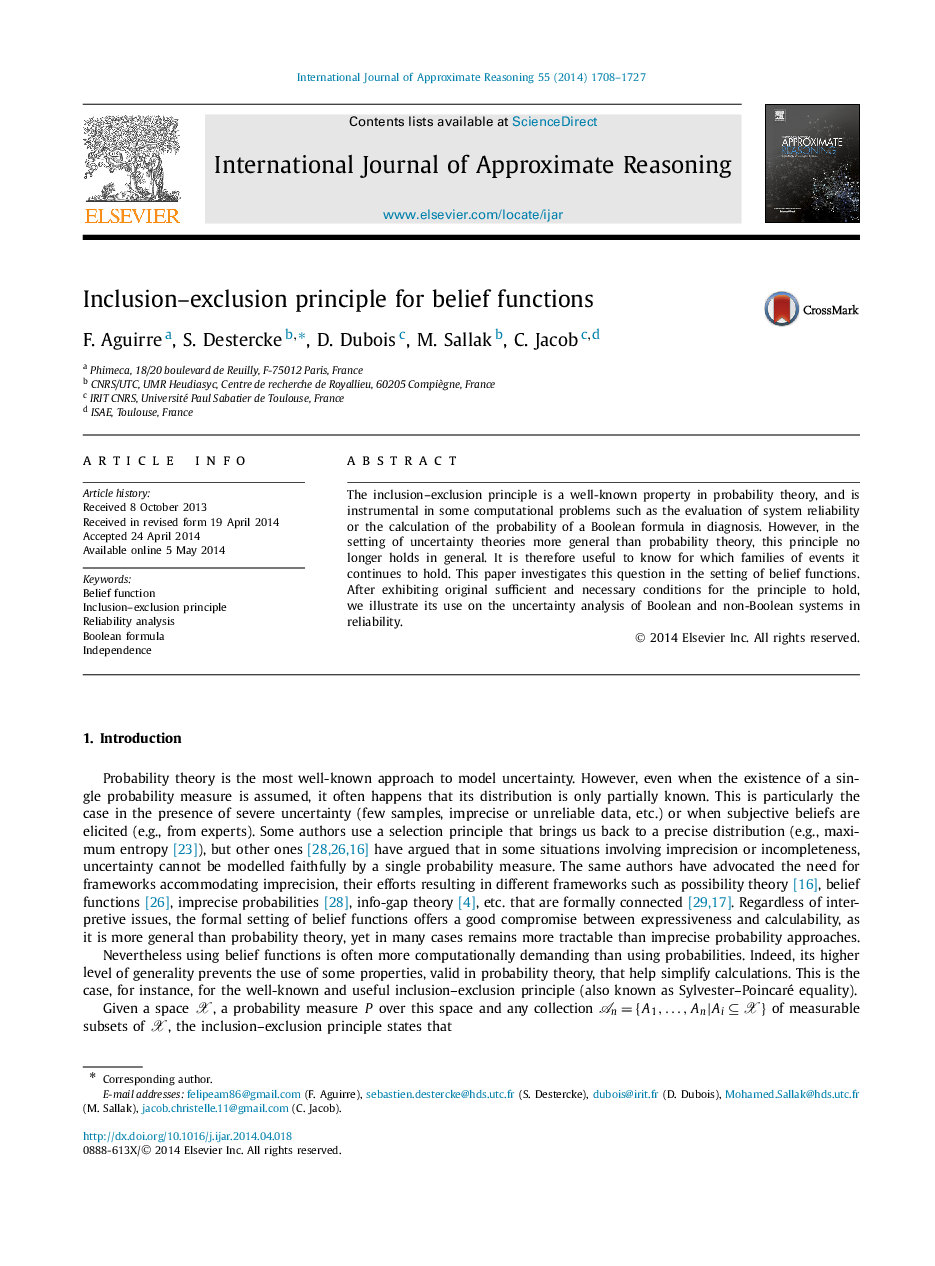| Article ID | Journal | Published Year | Pages | File Type |
|---|---|---|---|---|
| 396981 | International Journal of Approximate Reasoning | 2014 | 20 Pages |
•We give conditions under which the principle of exclusion/inclusion applies to belief functions.•We discuss its interest for evaluating uncertainty on Boolean formulas and monotone functions.•We illustrate the applicability of our results on reliability analysis problems.•We discuss the connection with other types of independence (strong independence).
The inclusion–exclusion principle is a well-known property in probability theory, and is instrumental in some computational problems such as the evaluation of system reliability or the calculation of the probability of a Boolean formula in diagnosis. However, in the setting of uncertainty theories more general than probability theory, this principle no longer holds in general. It is therefore useful to know for which families of events it continues to hold. This paper investigates this question in the setting of belief functions. After exhibiting original sufficient and necessary conditions for the principle to hold, we illustrate its use on the uncertainty analysis of Boolean and non-Boolean systems in reliability.
